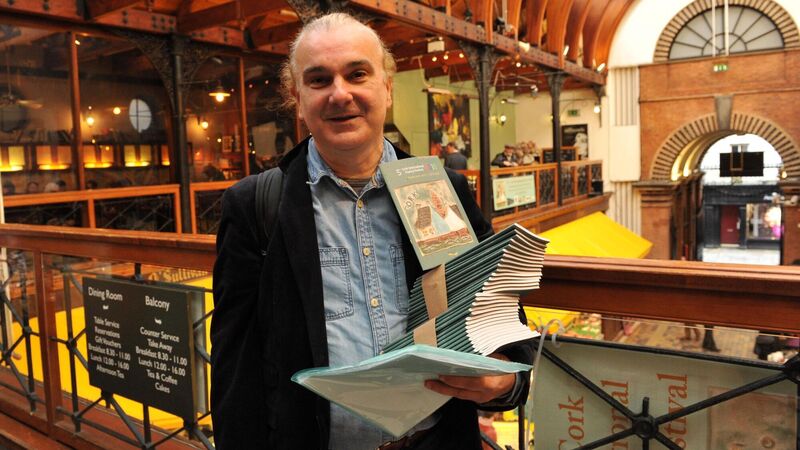Patrick Cotter: 'The world is being led by the generation that did not experience World War II'

Patrick Cotter at a previous Cork Poetry Festival event at the Farmgate in Cork. Picture:Des Barry
Writing in dark times, poet and director of the Munster Literature Centre, Patrick Cotter, devotes a section in his new collection to war under the heading, 'Songs in a Time of War'.
The book, Cotter’s fourth collection, entitled is testament to his strong observational powers and empathy for his fellow man (and woman).




